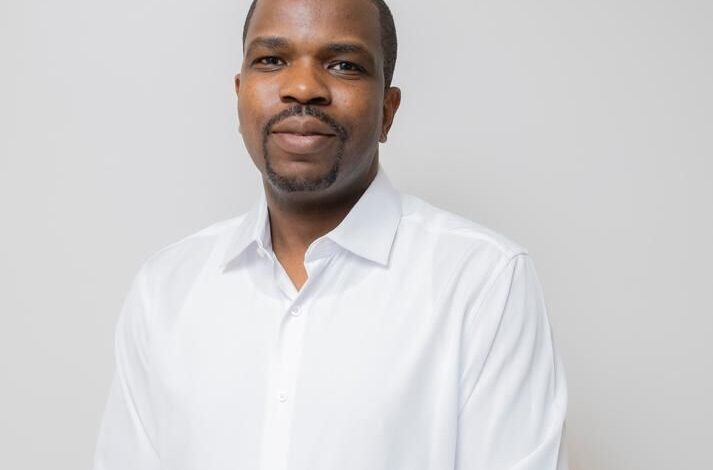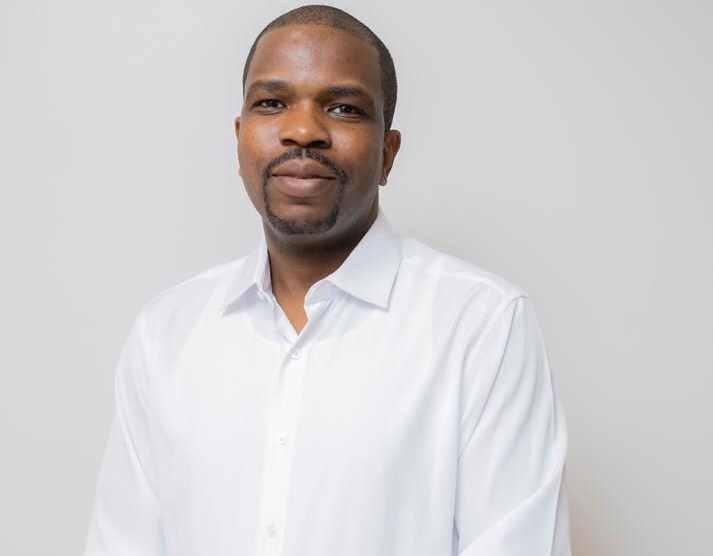Abolish boarding in Ghana’s public secondary schools now: The time for tradition has passed


I believe the time has come for Ghana to abolish the public secondary school boarding system. It has
outlived its purpose, drained our limited educational resources, and perpetuated inequality in ways
that betray the ideals of social justice and inclusion that education should represent.
The Ghanaian boarding school model may have served a purpose in the early years of nationhood, yet today it stands as an outdated relic of colonial and missionary legacy, a tradition more sentimental than
rational, more elitist than equitable, and more costly than the nation can sustain.
Historically, when missionary societies first introduced boarding schools in the Gold Coast, they were
never intended as a public social service. They were designed to create an isolated environment
where young men and women could be molded into spiritual leaders and defenders of the Christian
faith.
Their seclusion was meant to promote self-denial, moral discipline, and obedience to church
authority. Similarly, the single-sex design of most of these schools was justified as a means to
protect purity and encourage piety.
That was the rationale then, but is that the rationale today? Certainly not. Ghana is no longer a nineteenth-century colony or a fragile new republic of the 1950s.
Those missionary ideals, while understandable in their time, no longer align with a pluralistic, democratic, and economically challenged modern Ghana. Consequently, sentimentality toward these institutions must not outweigh the urgent realities confronting our education system.
Furthermore, these former mission schools have evolved into symbols of prestige and social class.
What was once intended to produce Christian leaders has become a system that privileges children
of the elite.
The top boarding schools such as Achimota, Wesley Girls, Mfantsipim, St. Augustine’s,
Prempeh College, Holy Child, and Bishop Herman now function as cultural clubs for the well-
connected, reproducing privilege rather than dismantling it.
Admission often favors students from urban centers or those with family networks among alumni or administrators. As a result, parents struggle, lobby, and sometimes pay bribes just to secure admission into these so-called Category A schools, as if a dormitory bed were a ticket to national success.
The moral narrative of discipline and faith that once justified these schools has given way to one of elitism and social competition.
Ultimately, education, which should be a public equalizer, has become another field of exclusion.
Beyond the social inequality, the economic burden of boarding schools on the national budget is
indefensible.
In the 2025 government budget, about GHS 26 billion was allocated to the education
sector, of which approximately GHS 4 to 5 billion goes into the Free SHS program.
Careful fiscal analysis indicates that around twenty percent of the total education budget, approximately GHS 5.2 billion or about USD 346 million, is consumed by boarding-related costs alone. This includes feeding, dormitory maintenance, utilities, and caretaking for boarding students.
That means Ghana spends over a third of a billion United States dollars every year feeding, housing, and maintaining secondary school boarders under Free SHS.
To put this in perspective, that amount could build or renovate over one thousand modern-day secondary schools across the country. It could provide teacher housing, science laboratories, and digital facilities nationwide. It could even fund a national STEM or vocational training program for years.
It is baffling that even the richest nations on earth do not bear such a burden. In the United States,
the United Kingdom, Canada, and other developed countries, government-funded boarding schools
barely exist.
Public high schools are primarily day schools, while the few boarding institutions are
privately managed and financed through endowments, alumni donations, and tuition.
These countries, with economies many times larger than Ghana’s, recognize that boarding is a luxury, not a public necessity. Yet Ghana, heavily indebted, resource-constrained, and struggling with
unemployment, continues to finance boarding education as though it were a national entitlement.
In an economy struggling with debt restructuring and high youth unemployment, this is not just
wasteful but unjust. Those billions could be redirected toward improving teacher pay, enhancing
supervision, or ensuring that every child, regardless of location, has access to quality instruction.
Year after year, we pour scarce funds into sustaining an antiquated residential model that benefits
only a small fraction of students while depriving the rest of the system of essential resources.
Equally important, Ghana stands virtually alone in its obsession with government-funded boarding
schools.
None of our neighboring countries run such an expansive and subsidized residential
education system. Nigeria, the giant of the subregion, operates the Federal Unity Colleges, where
tuition is free but boarding is paid for by parents.
In Lagos State, for instance, public boarding fees were recently increased to one hundred thousand naira per term, and no one expects the government to provide free feeding and accommodation for all students.
Across Togo, Côte d’Ivoire, and Burkina Faso, public secondary schools are overwhelmingly day schools. If boarding exists, it is limited and self-financed. Hence, Ghana’s model is an outlier, one that prioritizes nostalgia over pragmatism.
Likewise, the claim that boarding schools instill discipline and build character collapses under
scrutiny. Discipline does not come from isolation; it comes from consistent mentorship, responsible
parenting, and effective teaching.
The assumption that parents cannot instill discipline in their own children is both condescending and false. In fact, many boarding schools have become breeding grounds for bullying, sexual abuse, emotional trauma, and unhealthy hierarchies that go unchecked precisely because parents are kept away.
True discipline is not born from seclusion but from guidance, responsibility, and example—virtues that can be cultivated in well-managed day schools supported by engaged families and strong communities.
The boarding school system also poses serious health and safety risks. Several students have died in
boarding houses in recent years, with their parents informed only after long delays. Investigations
have revealed negligence, poor medical supervision, and the absence of proper emergency protocols.
These tragedies expose how vulnerable children become when institutional distance replaces parental oversight. The emotional and psychological trauma inflicted by such losses is incalculable.
Undoubtedly, no educational tradition is worth even a single preventable death. Admittedly, when Kwame Nkrumah expanded boarding schools in the 1950s and 1960s, his motivation was largely political and social integration. He wanted young Ghanaians from different ethnic backgrounds to study and live together, thereby fostering national unity in a newly independent state.
It was a visionary idea for its time. Nevertheless, Ghana has long moved beyond
that phase. Ethnic balance can now be achieved through curricular reform, cultural exchange
programs, interregional student projects, and national service frameworks.
We do not need to house teenagers together to make them patriotic. What we need is equitable investment in schools across all regions, so that excellence is no longer tied to geography or ancestry.
Therefore, the government can and must initiate a gradual phase-out of the boarding system. The
first stage should be to limit public boarding to a small, clearly defined number of students, primarily
those whose homes are too remote for daily commuting.
The next step is to redirect funds from boarding subsidies into classroom improvement, teacher training, laboratory equipment, school feeding programs, and transportation services. Over time, as infrastructure and transportation improve, boarding can be phased out of the public system completely, remaining only for exceptional cases such as students with disabilities or those from inaccessible communities.
This transformation will not only save money but also force the government to invest evenly in schools
nationwide, thereby reducing the inequality gap between elite and ordinary schools.
Furthermore, experience from other nations proves that abolishing boarding does not reduce
academic quality. In countries like the United States, public high schools operate almost entirely as
day schools, and yet they produce some of the world’s most outstanding students.
The few boarding schools that exist, such as Groton School, Milton Academy, and Phillips Academy in Massachusetts, are privately run institutions that rely on endowments, alumni networks, and philanthropic
donations.
They do not depend on government subsidies or taxpayer funds. They are need-blind and
offer scholarships to deserving students, but they are fundamentally self-sustaining. This is the
model Ghana should emulate.
If parents wish to send their children to boarding schools for reasons of prestige, convenience, or tradition, they should do so through private institutions that bear their own costs, not through a system that drains public coffers.
Ultimately, the abolition of public boarding will not destroy our education system; it will strengthen
it. It will restore education to its rightful place as a public good meant for all, not a privilege for a
few.
It will improve accountability, enhance safety, and deepen family participation in children’s
development. It will end the hypocrisy of preaching equality while financing elitism. It will redirect
billions of cedis to where they belong—to teachers, classrooms, libraries, laboratories, and digital
technology. Above all, it will reaffirm that the state’s duty is to educate every child, not to feed and
house them at great national expense.
In conclusion, Ghana must choose reason over sentiment. The boarding system was born of a
colonial and missionary past that no longer serves our future. Its time has passed. If we truly desire
an educational system that is equitable, efficient, and transformative, then we must have the
courage to let go of traditions that weigh us down.
The Ghanaian child deserves schools that are well resourced, safe, inclusive, and community-oriented, not dormitories that consume scarce funds and perpetuate class divisions.
Let us build a modern education system anchored in justice, efficiency, and human development. Boarding schools should now become a private choice, not a public burden.
Manaseh Mawufemor Mintah, PhD, PhD (Environmental Studies) | LLM (International Minerals & Energy Law and Policy) | JD (Environmental Law) | MA (Sustainable International Development) | BA (African Studies – History and Politics) Researcher on Governance, Mining Policy, and Education Equity
DISCLAIMER: The Views, Comments, Opinions, Contributions and Statements made by Readers and Contributors on this platform do not necessarily represent the views or policy of Multimedia Group Limited.
DISCLAIMER: The Views, Comments, Opinions, Contributions and Statements made by Readers and Contributors on this platform do not necessarily represent the views or policy of Multimedia Group Limited.
Source link





